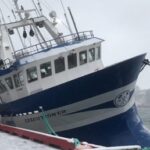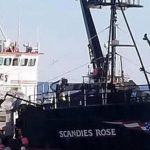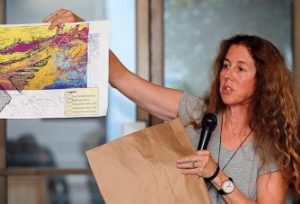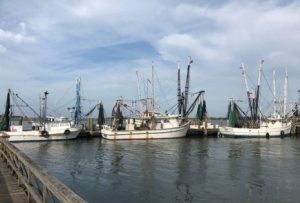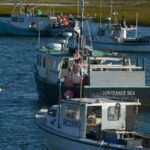Tag Archives: Barents Sea
Small Norwegian fishing boat confronted Russian warship during live-shooting exercise
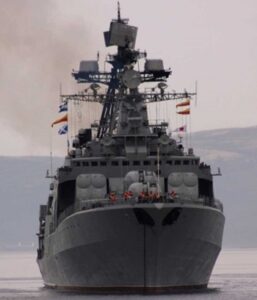 “This is Russian warship, you need to leave the area”, was the message chief mate Øystein Orten got over the radio as his crew was about to take the fishing gear up from the water. But the military exercise and the order to sail away didn’t at first scare the Norwegians. “I replied that it was out of question for us to move. We had longlines to take onboard,” Orten told to FriFagbevegelse. The Admiral Levchenko is an anti-submarine destroyer and one of the largest warships in the Northern Fleet. Øystein Orten and his crew of five onboard the 15-meters small fishing boat saw the huge warship sailing towards them and first stopped at a distance of 200 meters. The warship then blew the powerful horn for about 15 seconds. According to Orten, a warning shot was fired and the Norwegians decided to sail west. The 163-meters long destroyer followed the fishing vessel until she was out of the danger zone. more, >>CLICK TO READ<< 10:07
“This is Russian warship, you need to leave the area”, was the message chief mate Øystein Orten got over the radio as his crew was about to take the fishing gear up from the water. But the military exercise and the order to sail away didn’t at first scare the Norwegians. “I replied that it was out of question for us to move. We had longlines to take onboard,” Orten told to FriFagbevegelse. The Admiral Levchenko is an anti-submarine destroyer and one of the largest warships in the Northern Fleet. Øystein Orten and his crew of five onboard the 15-meters small fishing boat saw the huge warship sailing towards them and first stopped at a distance of 200 meters. The warship then blew the powerful horn for about 15 seconds. According to Orten, a warning shot was fired and the Norwegians decided to sail west. The 163-meters long destroyer followed the fishing vessel until she was out of the danger zone. more, >>CLICK TO READ<< 10:07
Share this post
The crab kings
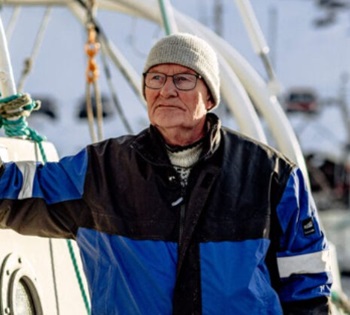 Near the end of 1991, the residents of Bugøynes, then a village of about 300 people in Norway’s Arctic north, ran an ad in the national newspaper Dagbladet, begging somebody to relocate them en masse. Cod and other whitefish, once Bugøynes’ bread and butter, were disappearing, and no one was quite sure why. One cold afternoon this past February, Leif Ingilæ rolls a cigarette and laughs hoarsely as he recalls the results. “We got offers from French vineyards to move all the residents there to pick grapes,” he says. “But we figured if everyone goes, we would all become alcoholics.” Mostly, the younger generation moved south in search of work, while the lifers survived on unemployment benefits. Ingilæ, whose family goes back generations in Bugøynes, first went to sea in 1967, when he was 15 years old. When the newspaper ad ran, it seemed his time in the area was up; his boat was one of just three anchored in Bugøynes’ harbor. Still, he stayed. photos, more, >>CLICK TO READ<< 07:55
Near the end of 1991, the residents of Bugøynes, then a village of about 300 people in Norway’s Arctic north, ran an ad in the national newspaper Dagbladet, begging somebody to relocate them en masse. Cod and other whitefish, once Bugøynes’ bread and butter, were disappearing, and no one was quite sure why. One cold afternoon this past February, Leif Ingilæ rolls a cigarette and laughs hoarsely as he recalls the results. “We got offers from French vineyards to move all the residents there to pick grapes,” he says. “But we figured if everyone goes, we would all become alcoholics.” Mostly, the younger generation moved south in search of work, while the lifers survived on unemployment benefits. Ingilæ, whose family goes back generations in Bugøynes, first went to sea in 1967, when he was 15 years old. When the newspaper ad ran, it seemed his time in the area was up; his boat was one of just three anchored in Bugøynes’ harbor. Still, he stayed. photos, more, >>CLICK TO READ<< 07:55
Share this post
Russia pointlessly rips up deal allowing British fishermen access to their waters
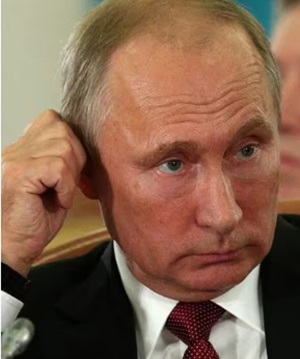 Fishing boss Mike Cohen poked fun at Russia over the “outlandish” claim that 40 percent of the diet of the average Briton consists of fish. Vladimir Putin has pulled the plug on a decades-old deal which allows British fishermen access to its seas in response to the UK’s decision to impose sanctions on Russia over its invasion of Ukraine. However, a spokesman for the British fishing industry has pointed out that no British crews have worked the icy waters of the Barents Sea since the 1960s – dismissing the move as “domestic political theatre” “I cannot see any way in which this will affect British fishermen or British consumers.”. more, >>click to read<< 06:23
Fishing boss Mike Cohen poked fun at Russia over the “outlandish” claim that 40 percent of the diet of the average Briton consists of fish. Vladimir Putin has pulled the plug on a decades-old deal which allows British fishermen access to its seas in response to the UK’s decision to impose sanctions on Russia over its invasion of Ukraine. However, a spokesman for the British fishing industry has pointed out that no British crews have worked the icy waters of the Barents Sea since the 1960s – dismissing the move as “domestic political theatre” “I cannot see any way in which this will affect British fishermen or British consumers.”. more, >>click to read<< 06:23
Share this post

Fishing organization tells members to avoid Russian waters
Fiskebåt, the organization, on Monday told its members that caused by the tense situation following Russia’s invasion of Ukraine, it would be recommended to avoid fishing in the Russian economic zone until further notice. “Our thoughts go first and foremost to those who live in Ukraine, but at the same time we must continuously consider what consequences this situation will have for the activity of our members,” says Audun Maråk, CEO in Fiskebåt. Right now, there are no Norwegian fishing vessels in the Russian zone, as most of the Barents Sea over the past few weeks has been closed due to massive military maneuvers and shootings by the powerful Northern Fleet. Led by President Putin, the nuclear deterrence forces were exercising earlier in February. >click to read< 12:40
Share this post
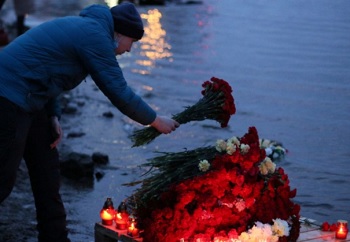
Russian fishing vessel Onega capsizes in Barents Sea – Search and rescue operation completed
Seventeen sailors are still missing after the sinking of a Russian ship on Monday in the northern Barents Sea. “According to preliminary data, a rescue buoy was activated on the sunken vessel”, added Russian authorities. In its latest statement issued on Monday, the Russian Ministry of Emergency Situations (EMERCOM) indicated that one rescue vessel was already on site and that three others were “on their way to conduct search and rescue operations”. >click to read< ,, Search and rescue operation after sinking of Onega fishing vessel in Barents Sea completed – Rosmorrechflot – “The active phase of the search and rescue operation in the aftermath of the sinking of the Onega vessel was completed at 3:00 p.m. Moscow time on December 30,” the agency spokesperson said, adding that the vessels taking part in the search effort are now returning to base. >click to read< 10:02
Share this post
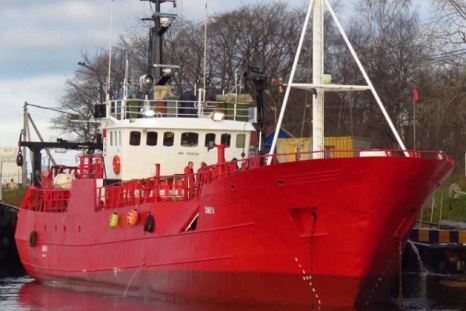
17 fishermen feared dead, two rescued after Russian trawler sinks in the Barents Sea
The fishing boat Onega, sank near the Novoya Zemlya archipelago with 19 people on board, local news outlets reported, citing the Russian Ministry of Emergency Situations. The ministry attributed the incident to the formation of too much ice on the vessel. >click to read< , 17 fishermen feared dead after boat sinks in Arctic Russia – Seventeen fishermen were missing and feared dead on Monday after a Russian boat capsized during a storm and sank in the freezing waters of the Barents Sea. Officials said that two people had been rescued during a search-and-rescue operation, but that bad weather conditions had complicated efforts to find survivors. >click to read< 06:23
Share this post
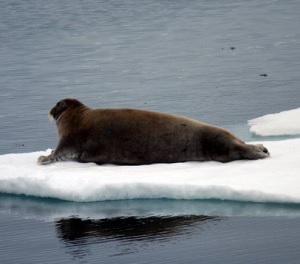
Russia, Norway to increase cod quota
Norway and Russia share the marine resources in the Barents Sea and quotes for the different spices are negotiated annually. “I’m very pleased that we also for the next year have managed to reach an agreement that both safeguards the interests of the fishing industry and is biologically sustainable. This is a bright spot in a situation where the corona pandemic naturally also affects the fishing industry,” said Norway’s Minister of Fisheries, Odd Emil Ingebrigtsen, in a statement as the 2021 agreement was signed. As part of the agreement, Norway and Russia will jointly establish a research program studying how big impact the harp seal (Greenland seal) has on the fish stocks in the Barents Sea. The parties in the commission state that the harp seal in the West Ice (the Greenland Sea) and the East Ice (eastern part of the Barents Sea and the White Sea) has “a significant impact on the commercial fish stocks.” >click to read< 12:28
Share this post
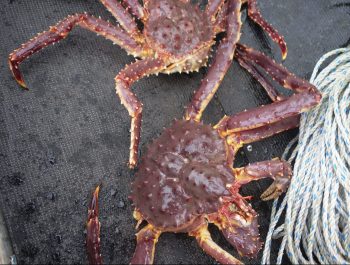
Arctic crab invasion reaches new shores
Before 1960, the fishermen that sailed in the Barents Sea knew little about crabs. Then, developments unfolded that ultimately altered marine life on the far northern sea bottom. In fall 1960, Soviet marine biologist Yuri Orlov successfully moved nine female king crabs from Vladivostok to Murmansk. In the following ten years, another 3,000 crabs were moved the Kola Bay. Then, thousand more in the 1970s.,, According to the retired marine researcher, the king crab will continue to spread, and could ultimately reach as far south as the UK, and then even the Gibraltar. >click to read< 09:21
Share this post
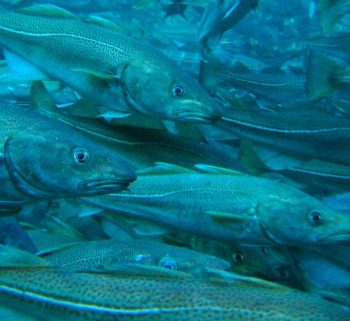
Assessing the consequences of oil spills on commercial fish
Each spring, Northeast Arctic cod (Gadus morhua) travel from the Barents Sea to spawn further south along the Norwegian coast from Møre to Lofoten, releasing millions of eggs into the ocean. These eggs then begin their own journey, developing into fish larvae as they drift with the currents, north and east towards the Barents Sea. The journey is perilous and their chance of survival is small. For every million eggs, only about 800 larvae survive the first half year. Their fate depends on the movements and prevailing environmental conditions of the North Atlantic Current, >click to read<09:17
Share this post
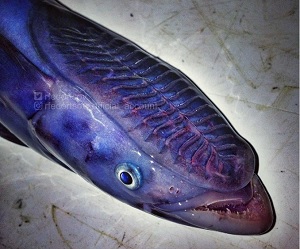
Russian fisherman shares pics of nightmare creatures from the depths
A Russian fisherman has found Internet fame by posting photos of all the weird and horrifying creatures he finds on his travels near the Arctic. Roman Fedortsov, a 40-year-old engineer and technologist on fishing trawlers in the Barents Sea, posts his bizarre finds a few times a week – to the horror and amusement of his followers. He told the Press Association: “People are very interested in unusual sea creatures. Photo’s, >click to read<16:36
Share this post
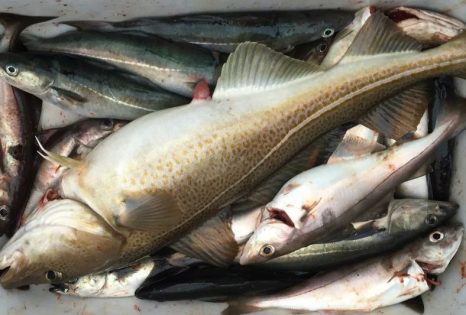
Norway and Russia agree to slash cod, haddock quotas in Barents Sea, suspend capelin catch
The joint Norwegian-Russian Fishery Commission decides to reduce next year’s quotas to 725,000 tons. “After another round of constructive and good negotiations with Russia I am pleased that we have reached an agreement for 2019,” says Norwegian Fisheries Minister Harald T. Nesvik. “This will allow us to continue to harvest our joint fisheries in the Barents Sea in a sustainable way,” he adds. In 2019, the Barents fisheries will also see haddock quotas reduced quotas. The capelin catch will be halted. <click to read<
Share this post
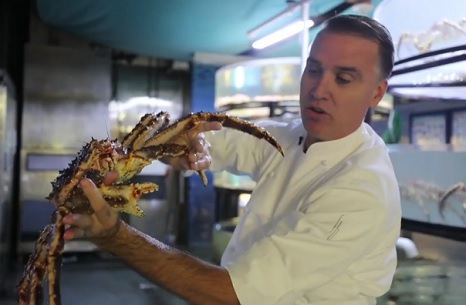
$600 ‘prehistoric’ king crab, anyone? Now at Fontainebleau Miami Beach
For those who like to splurge into the deep — in the sea and their wallets — have we got a deal for you. Just $600 will buy you and your feeding crew a rare delicacy: an 8-pound Norwegian red king crab. The Fontainebleau resort in Miami Beach has received a small, annual allotment of the live crabs, dubbed “prehistoric luxury shellfish” by the resort’s PR agency. Caught from the icy waters of the Barents Sea off Norway’s northern coast, the crabs that arrived this week weigh 5 to 8 pounds and can feed up to five people. The shipment of live crabs and langoustines (jumbo European prawns in shells that resemble lobster) are kept in special “Waterworld” tanks of seawater in the resort’s basement. >click to read<18:08
Share this post
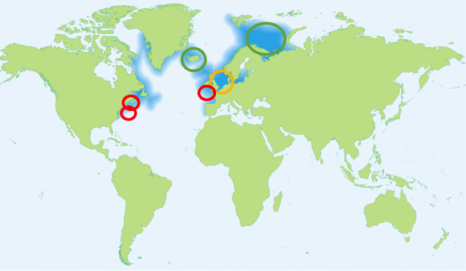
Atlantic Cod: The Good, The Bad, and the Rebuilding – Part 1
Atlantic cod have been emblematic of fisheries problems, with the 1992 collapse of the Northern cod stock in Canada setting the stage for the last 25 years of concern surrounding status of cod stocks. Mark Kurlansky’s book “Cod” sold over a million copies, increasing awareness and concern over cod fisheries. Further, the two U.S. cod stocks continue to be at very low abundance; an article in the Houston Press released September of 2011 stated “Atlantic cod has been fished nearly to extinction.” However, over the entire Atlantic Ocean, the abundance of cod is high and increasing (Figure 1). There are over two dozen cod stocks that are defined as management units, 6 of which are addressed in this feature: 2 on the western side and 4 on the eastern side of the Atlantic basin (see Figure 2). The two U.S. stocks are Georges Bank and Gulf of Maine, and the four European stocks occupy the shelves of Iceland, the Barents Sea, the North Sea, the Celtic Sea, and the Baltic Sea. Read the article here 15:18
Share this post
Barents Sea awash with snow crabs
 Nofima is researching the best ways of using snow crabs as more and more of the species are being caught in the Barents Sea by both Norwegian and Russian vessels. Traditionally, snow crabs have been one of the most important products from Alaska, but with up to 4,000 tonnes of the species being landed in Norway in the past year, Nofima says it’s time to get to know the cold-loving crab. Read the rest here 15:47
Nofima is researching the best ways of using snow crabs as more and more of the species are being caught in the Barents Sea by both Norwegian and Russian vessels. Traditionally, snow crabs have been one of the most important products from Alaska, but with up to 4,000 tonnes of the species being landed in Norway in the past year, Nofima says it’s time to get to know the cold-loving crab. Read the rest here 15:47

































